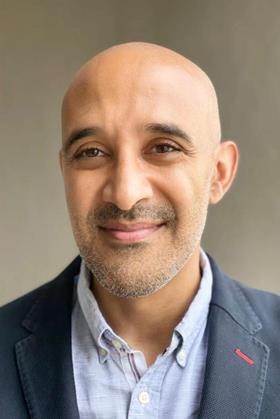The UK’s Film and TV Charity has launched the latest version of its Looking Glass Survey to assess industry workers’ mental health and wellbeing.
The 2024 Looking Glass survey will ask whether respondents have seen changes in working culture and behaviours, examine the prevalence of bullying and harassment, and the impact of working in the industry on people’s personal lives. It will also explore the relationship between financial well-being and mental health in the face of continued uncertainty across the industry.

The survey launches against the backdrop of a sustained production downturn and widespread redundancies, adding to pressures identified in 2019 caused by workplace culture, conditions, and the industry’s capability to support its workers. The survey is open to people currently working in the sector as well as people who have done so in the last 12 months.
Read more Film London activities to generate £9.5bn investment boost for capital
Marcus Ryder, CEO, Film and TV Charity, said: “It’s more important than ever, wherever you work in the film, TV, and cinema industry, that you take just one more survey and find the time to engage with Looking Glass 2024. Over three prior iterations, our research has become a bellwether when it comes to mental health and wellbeing in the UK screen industries. The data we’ve gathered has enabled us not only to identify and provide the right support for thousands of workers, but also to take the conversation to the very people who can and should be effecting meaningful change where it’s needed.
“The most recent survey in 2022 indicated that many in the industry felt there were positive changes in attitudes and behaviours around mental health, but that was before the cost-of-living crisis, strikes and production downturn had begun their sustained assault on workplace wellbeing. For these reasons, it’s absolutely vital that we hear from everyone in every corner of the industry again now – so that the Film and TV Charity can develop its support, and so we can rewrite the script when it comes to mental health,” he said.
Rupert Jones-Lee, Head of Research and Impact, Film and TV Charity, said: “The Looking Glass is a survey that makes a difference. Over five years, it has created an evidence base that has helped gather millions of pounds to provide practical support for colleagues suffering from the worst impacts of our industry’s working practices. It has also given us the evidence to secure an audience at the most senior levels, to win hearts and minds, and to drive real culture change. The last 18 months have been unbelievably difficult for many in the industry and it is absolutely vital that the voices of those affected are heard. It is our privilege to be able to speak truth to power – constructively, but honestly. But the words must be yours, not ours. Completing the survey is a really practical step you can take to help everyone in the industry: you, yourselves, and everyone you care about. The more responses we get the fuller a picture we can paint. Please, take the Looking Glass survey today, and encourage everyone you know in the industry to do the same.”
Since 2019 – and in large part because of evidence uncovered through its Looking Glass surveys – the Film and TV Charity has expanded the mental health support services offered through its Film and TV Support Line, including free, quick access to in-the-moment support, counselling and other interventions. It has also launched a confidential Bullying Advice Service, a self-service online Wellbeing Check-in, and developed its Wellbeing at Work support. It’s free online resource, the Whole Picture Toolkit for mentally healthy productions, has helped to embed best practice on more than 200 productions of all sizes and in all genres. Recently, Ryder has also advocated for better support for freelancers during an appearance before the Parliamentary Culture, Media and Sport Committee.
The 2024 Looking Glass Survey can be accessed here.
Read more Volumetric capture: how to bridge the skills gap for broadcast professionals
























No comments yet